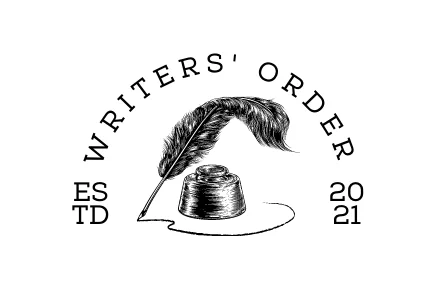You have to be the change to bring the change.

Best Financial Practices for Freelance Writers
Our content is reader-supported. We may earn a commission if you make a purchase through one of our links.
Managing to land a few freelance writing gigs is a dream come true for writers as they gain independence and flexibility in work: something that’s difficult to find with a regular job. But along with the independence and flexibility, there are drawbacks too. Financial ones, primarily. Read on to learn about the best financial practices for freelance writers to avoid those drawbacks.
Freelance writing can be a very rewarding career if you manage to hit the right strings. Along with being rewarding, it can also be a very consuming one. You might often find yourself too engulfed in the world of words, losing track of other things that need your attention.
As a writer, I understand how every aspiring writer plans to concentrate their time and energy on creative endeavors. You might as well get so caught up with your schedule that you might forget that there are expenses to be adjusted and taxes to be paid.
Writers are free souls who like to roam around the world of words, and seldom like running through the number maze. Financial management can be an overwhelming process for some of us, so here are a few tips and tricks.
Why is Financial Planning Essential for Freelance Writers?
Financial planning acts as a path for you to work your way through the unpredictable journey of life, as many writers like to put it. But if you’re new to the freelancing world, your income is likely to be irregular or unsteady, adding an extra touch of uncertainty. Financial planning guides you on how you will cover your current and future costs while also mitigating the effects of any unforeseen event.
According to The 2020 Annual Freelance Economic Impact Report from Fiverr, the biggest challenge faced by freelancers is unsteady income and this drawback can be covered by financial planning. A report by the Journal of Entrepreneurship Education states, “In addition to job insecurity, many freelancers also report continuing problems with employers who do not pay on time and the possibility of long periods of unemployment”
While full-time employment workers get the advantage of a fixed income coming in every month which gives them the assurance of paying their monthly bills like rent and utilities, freelancers lack this certainty at times.
However, if you are planning your finances this issue can be mitigated. You spread your expenses accordingly and when you see a good month you put it in savings to compensate for a bad month.
10 Financial Practices for Freelance Writers
Setting Goals
Financial planning also gives you the opportunity to set your financial goals. These can be short-term to cover one’s daily or weekly costs or long-term as in saving up for a house or car.
These goals need to be specific and attainable. You should articulate your goals clearly so you know the exact amount you need to reach a particular goal. This will give you a chance to break it down into manageable amounts and then yourself accountable for it.
Invoicing
The first step of getting your finances straight is getting paid. As soon as you finish a task and submit it for payment, get an invoice sent as well. Keeping track of all your invoices is prudent. Include your terms of payment in the invoice so both you and the client know the details of each transaction. This will also help you send reminders in case of late payments. This service is automatically provided by platforms like Upwork or Fiverr.
If you’re working with clients directly, there are a number of apps like FreshBooks and Quickbooks and online tools that can keep track of your invoicing by sending, reminding, and assigning invoice numbers.
If you are not comfortable with online tools you can always record by making spreadsheets to keep a check on pending payments. Don’t forget to mark them paid as you receive payment or you’ll be sending reminders for already paid jobs, which despite being unintentional seems unprofessional.
Make a Budget
The next step is to allocate your money into three parts – needs, savings, and wants. One of the most common rules is the 50/30/20 rule. Here, you allocate 50% of your income to your needs, 30% goes into savings, which leaves 20% going in for your wants, guilt-free.
Make a baseline budget by tracking your income for the past few months then trace your expenses. Knowing exactly how much your expenses are can be a game-changer. Once you have that amount you know what you are left behind for your savings and wants but if your income is not covering your expenses you will find yourself in a fix.
Keep Personal and Business Accounts Separate
While you are budgeting you will realize that the best way to keep track of your revenue and costs is to keep your personal and business accounts separate. It will benefit you as it serves as your business cash flow sheet where you can keep a trail of all your invoices.
This will also help you compartmentalize your expenses and not spend out of the revenue amount before deducting for the essentials like rent and other needs expenses. If you are receiving checks for your payments as at times large amounts cannot be catered by PayPal, keeping this account will be helpful to deposit your checks hassle-free online.
It will also be an easy play in the future if you look for credit from a bank. Showing a separate business account will show your credibility.
Cover Your Health Insurance
One of the poignant truths is about freelancing is that freelance writers lose the perks that full-time employees enjoy. This includes the loss of health insurance – if you don’t have health insurance you can be spending wads of cash when you fall ill which can be huge unexpected expenses one has to bear.
A study states that 61% of freelancers see the lack of benefits as a huge drawback of this industry. This can cause you to empty your savings account so it’s better to go and buy reasonable and efficient health insurance. Investing in your health is one of the wisest financial practices for freelance writers.
Pay Off Your Debts
Another paramount factor about managing your finances is maintaining a good credit score. To achieve this you should prioritize paying off debts if you have any. This is also essential as in debt repayment, extra cash is lost paying for the interest of that debt. Debt payment will also impact your ability to make any future financial decisions like being able to receive loans easily if you have a strong credit score.
Consider Retirement Plans
Another predicament that freelancers face is they have to worry about their retirement funds. Preparing yourself for the future is one of the most important financial practices for freelance writers. While you are self-employed the responsibility of your future falls on your shoulders.
To invest in your old age, it is recommended to invest in some good hedge funds to keep the future secured. These can be government schemes or traditional IRA schemes.
Plan for Taxes
Self-employment brings the headache of tax calculation and payment to the employee itself as you have to pay it and calculate it yourself.
You might have to submit separate forms for every client you receive payment from so it will become a tiresome job. My tip is to record and submit every form as you receive payment and keep the amount you owe for tax in from every invoice.
Don’t leave this work out for the end of the year. Allocate the approximate amount aside and divide it over each month so you are not faced with paying a high amount in one month upsetting the budget overall.
Account for Your Own Paycheck
Laura Shin at Forbes discusses how to allocate prudently for your own paycheck. This can be very important because this will be a constant paycheck you are receiving so budgeting is made easy.
This specific amount coming to your personal account gives you a sense of relief to plan your expenses around it. When your business is thriving you keep the extra in your business amount for the months when you will be falling behind. This will give you a sense of stability.
Bookkeeping
If you are aware of accounting, simply create a spreadsheet so you can monitor your income and expenses. If that is not the case, use the technology efficiently and get any software like Wave, that will help you keep your books in order. You can also always hire a professional to help you out in your books to lessen your stress as writers tend to be more creative people and dealing with finances is not a brainer for them.
This will come in handy in your budgeting, taxes, and even in the allocation of expenses like your retirement fund or saving account.
Diversifying
In a profession as dynamic as freelance writing, one way to make yourself stable and strong is to diversify your income stream. It will be a real catastrophe if your income is coming from just one client and that client decides to end the contract for some reason. Diverse income streams never feel important until you’ve gotten screwed and you’re in real trouble business-wise.
To avoid such a situation one should diversify its clients so if one falls short you have others to fall on to. Another tip will be to diversify your skillset and enlarge your portfolio. For example, if you are a copywriter start to master yourself in creative writing as well to score more jobs.



